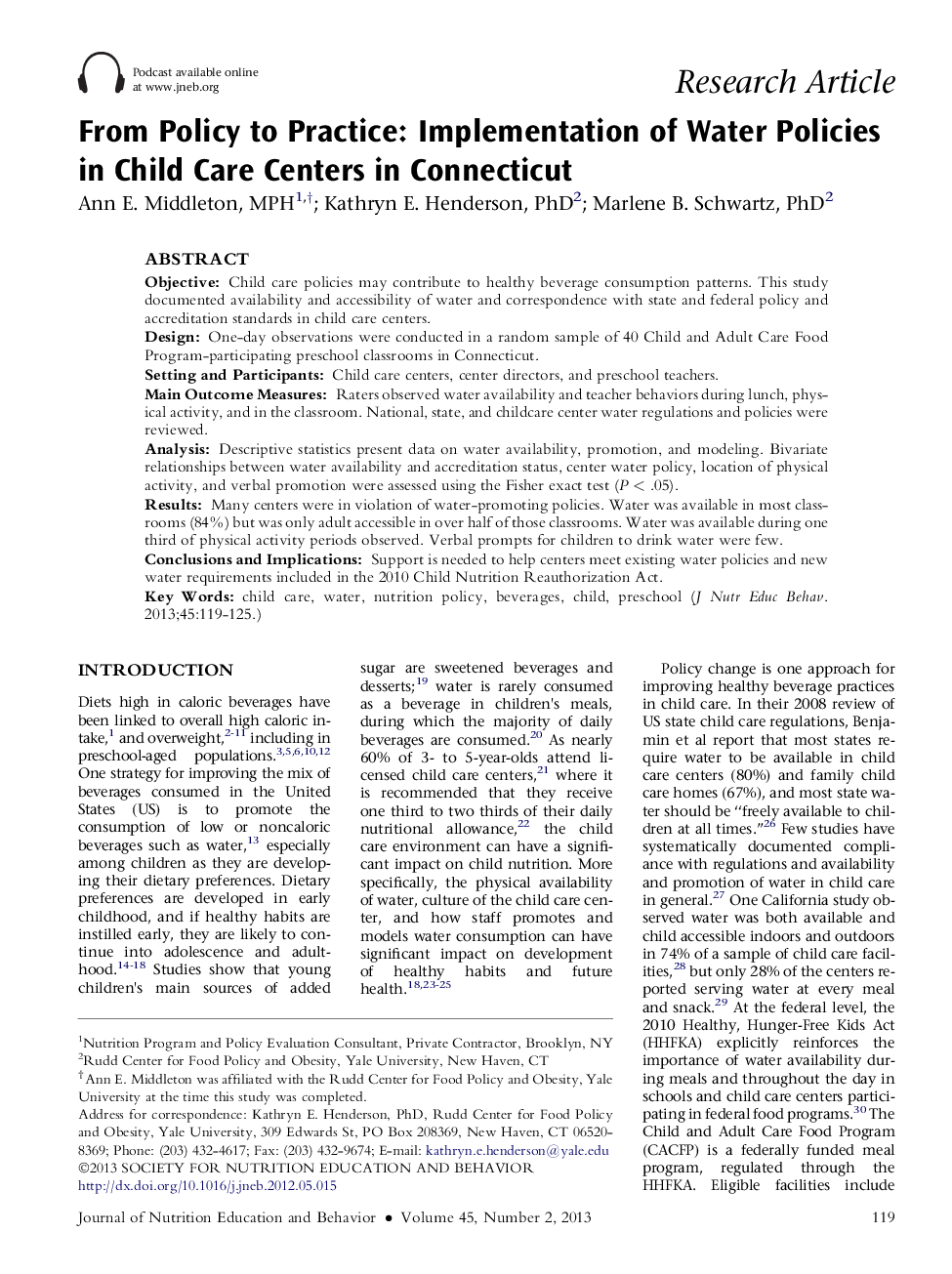| Article ID | Journal | Published Year | Pages | File Type |
|---|---|---|---|---|
| 361910 | Journal of Nutrition Education and Behavior | 2013 | 7 Pages |
ObjectiveChild care policies may contribute to healthy beverage consumption patterns. This study documented availability and accessibility of water and correspondence with state and federal policy and accreditation standards in child care centers.DesignOne-day observations were conducted in a random sample of 40 Child and Adult Care Food Program-participating preschool classrooms in Connecticut.Setting and ParticipantsChild care centers, center directors, and preschool teachers.Main Outcome MeasuresRaters observed water availability and teacher behaviors during lunch, physical activity, and in the classroom. National, state, and childcare center water regulations and policies were reviewed.AnalysisDescriptive statistics present data on water availability, promotion, and modeling. Bivariate relationships between water availability and accreditation status, center water policy, location of physical activity, and verbal promotion were assessed using the Fisher exact test (P < .05).ResultsMany centers were in violation of water-promoting policies. Water was available in most classrooms (84%) but was only adult accessible in over half of those classrooms. Water was available during one third of physical activity periods observed. Verbal prompts for children to drink water were few.Conclusions and ImplicationsSupport is needed to help centers meet existing water policies and new water requirements included in the 2010 Child Nutrition Reauthorization Act.
